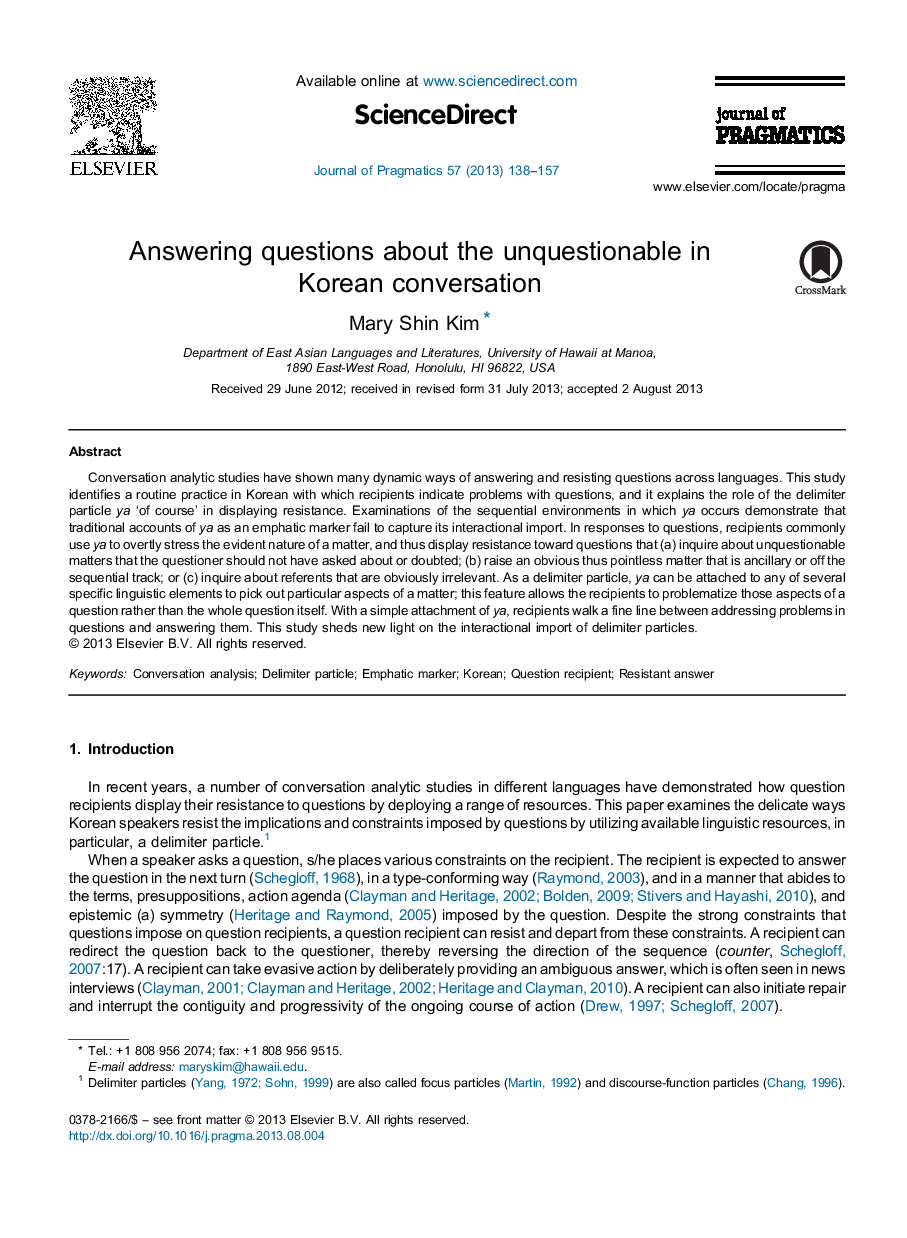| Article ID | Journal | Published Year | Pages | File Type |
|---|---|---|---|---|
| 932834 | Journal of Pragmatics | 2013 | 20 Pages |
•Korean speakers routinely resist questions by using the delimiter particle ya.•With the delimiter ya, recipients contest questions for their obviousness or irrelevancy.•The delimiter ya allows recipients to resist specific aspects of a question.•Designs and resources for resisting questions vary across languages.
Conversation analytic studies have shown many dynamic ways of answering and resisting questions across languages. This study identifies a routine practice in Korean with which recipients indicate problems with questions, and it explains the role of the delimiter particle ya ‘of course’ in displaying resistance. Examinations of the sequential environments in which ya occurs demonstrate that traditional accounts of ya as an emphatic marker fail to capture its interactional import. In responses to questions, recipients commonly use ya to overtly stress the evident nature of a matter, and thus display resistance toward questions that (a) inquire about unquestionable matters that the questioner should not have asked about or doubted; (b) raise an obvious thus pointless matter that is ancillary or off the sequential track; or (c) inquire about referents that are obviously irrelevant. As a delimiter particle, ya can be attached to any of several specific linguistic elements to pick out particular aspects of a matter; this feature allows the recipients to problematize those aspects of a question rather than the whole question itself. With a simple attachment of ya, recipients walk a fine line between addressing problems in questions and answering them. This study sheds new light on the interactional import of delimiter particles.
